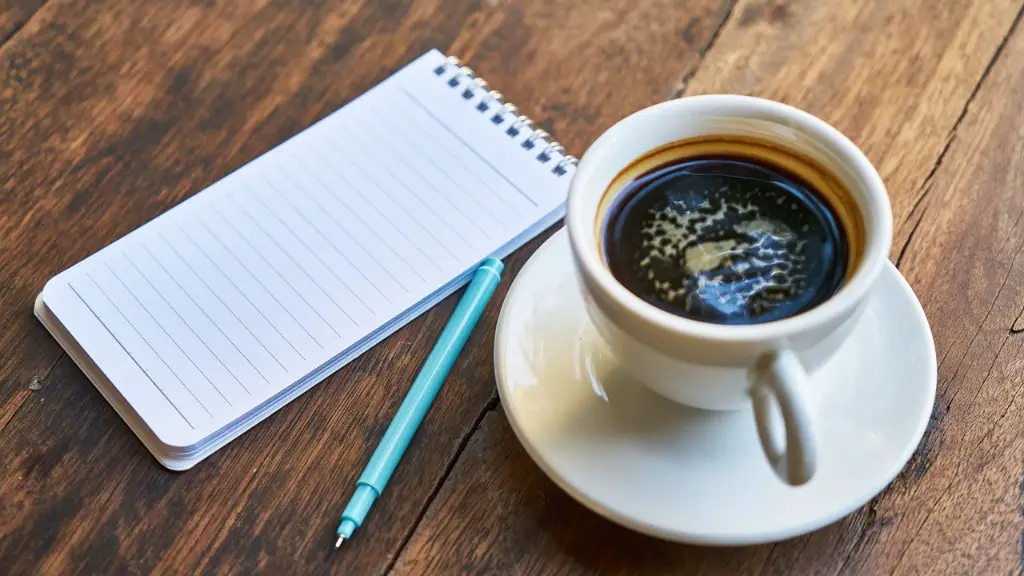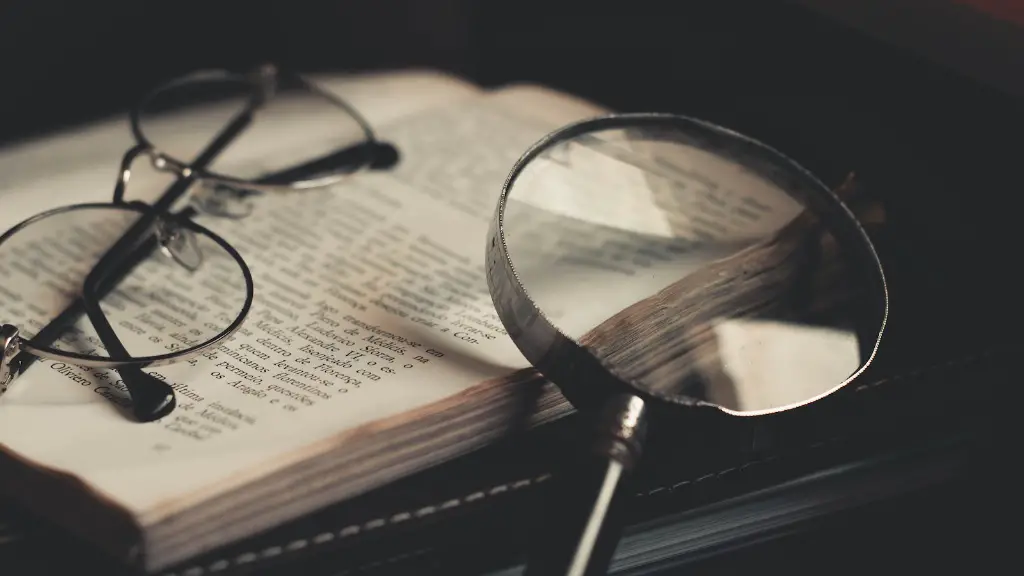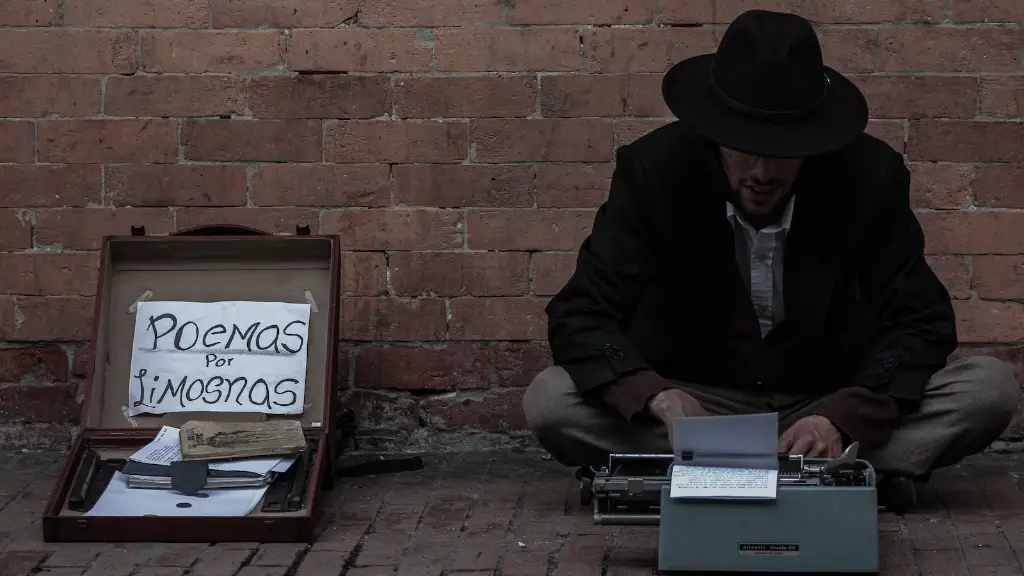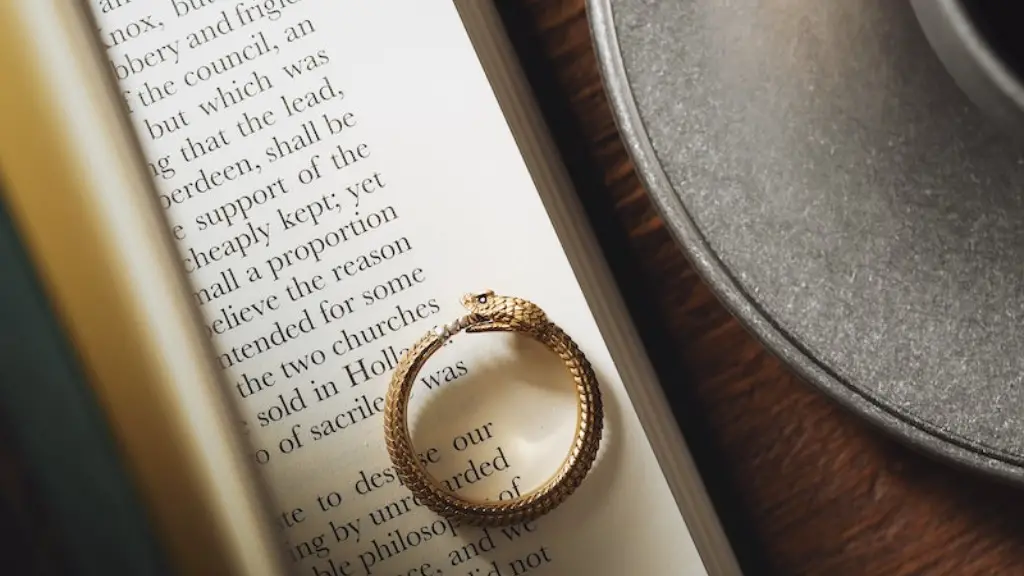Definition Of Experimental Poetry
Experimental poetry is a type of writing which challenges traditional forms of writing by employing a range of techniques and forms to explore different concepts, ideas, languages and media. This form of poetry aims to create something that is unique and different from traditional poetry. It has come into existence in recent times as a way of experimenting with new ways of conveying experiences and ideas.
Forms Of Experimental Poetry
Experimental poetry exists in a variety of forms, often taking inspiration from both the traditional and the avant-garde. Some of the most common styles of experimental poetry include visual and sound based poetry, which are often produced using digital technologies such as computers and music programs. Other forms include concrete poetry, which is created by arranging words in an unconventional way in order to create a visual effect that conveys a particular idea or message. Additionally, some experimental work may contain elements of performance art, using a mix of vocal performance and physical movement.
Aims Of Experimental Poetry
Experimental poetry focuses on pushing the boundaries of poetry and language. By using unconventional techniques such as sound, visuals and performance, it seeks to create works of art which can evoke emotion and stimulate thought in the reader. For example, a visual poem may convey ideas or feelings through the arrangement of words and shapes, while a sound poem might use a combination of words and music to create a unique aural experience. In this way, experimental poets use a range of techniques to explore and express ideas in innovative ways.
Experimental Poetry And Traditional Poetry
While experimental poetry is distinct from traditional poetry, there are shared elements between the two. Both genres may employ traditional poetic forms, such as the sonnet or the villanelle, while exploring new ways of interpreting these forms. Similarly, many experimental poets still create work in the form of prose poems, which may contain some of the same techniques as traditional poetry but will tell a story using fragments and associative language.
History Of Experimental Poetry
Experimental poetry has its roots in the modernist and avant-garde poetry of the early 20th century. Some of the earliest examples of this type of writing include works by Irish poet W.B. Yeats, American poet T.S. Eliot and French poet Arthur Rimbaud. These poets sought to break away from traditional conventions by using unconventional imagery and associative language in order to create a unique form of expression.
Evolution Of Experimental Poetry
In the decades since its inception, experimental poetry has steadily evolved. In recent years, poets have continued to explore new ways of conveying their ideas, often employing elements of visual art, music and other media. Additionally, many of today’s experimental poets are using digital tools to explore the potential for poetry on the web, creating works which can be shared and experienced in a range of formats.
Techniques Used In Experimental Poetry
Experimental poets use a variety of techniques in order to create works which are both unique and engaging. These range from traditional poetic conventions, such as rhythm and alliteration, to more unconventional methods such as sound and performance. Additionally, many experimental poets create works which employ elements of multimedia and digital technology, creating interactive poetry which can be experienced by the reader in different ways.
Examples Of Experimental Poetry
Experimental poetry can be seen in many different forms and can be experienced in both physical and digital formats. Some examples of experimental poetry include Visual Poem, by Jia Tolentino, which is a digital interactive work exploring the potential of multimedia; the poem cycle New Maps, by Ann Carson, which combines traditional poetic techniques with fragmented language; and the immersive soundscape Seven Seas, by Margaret Atwood, which combines language and music to explore the theme of human connection.
Cultural Relevance Of Experimental Poetry
Experimental poetry has become increasingly popular in recent years, with more and more people engaging with this form of writing. With its focus on pushing the boundaries of language, this type of writing has become a way for poets to explore complex ideas and concepts and to convey their experiences in an innovative and engaging way. As such, it has become an important part of contemporary culture, with many poets looking to the form as a way of expressing their creativity and connecting with their readers.
Benefits Of Reading And Writing Experimental Poetry
Reading and writing experimental poetry can be a powerful experience, both personally and culturally. By engaging with this form of writing, readers can broaden their understanding of poetry, as well as exploring new forms and ideas. Similarly, writers can use this type of writing as a form of self-expression and exploration, expressing their ideas and experiences in a unique and engaging way.
Reception Of Experimental Poetry
Since its inception, experimental poetry has received a mixed response. While some critics have praised its ability to challenge traditional ideas and explore new concepts, others have argued that it is more focused on aesthetic than substance. Similarly, the genre has been met with both excitement and resistance in academic circles, though its popularity continues to grow.
Contemporary Examples Of Experimental Poetry
Experimental poetry continues to evolve and change, with more and more writers exploring new forms and techniques. Some notable contemporary examples of experimental poetry include AI poems, created by artificial intelligence, and interactive works such as The Poetry Geek, by writer and programmer John Harrison, which incorporates elements of videogames, motion graphics and coding to create unique digital poetry experiences.
Influence Of Experimental Poetry On Mainstream Poetry
Experimental poetry has had a significant influence on mainstream poetry, inspiring many composers to explore new ways of writing. The ability of experimental poetry to push the boundaries of form, subject matter and language has allowed mainstream poets to experiment with their work, leading to a rich and diverse poetic landscape.
Advantages Of Producing Experimental Poetry
Producing experimental poetry can offer many advantages to the artist. By embracing new forms and techniques, poets can create engaging, thought-provoking works which can resonate with audiences and encourage them to experience poetry in a new way. Affording poets more freedom and creativity, experimental poetry can help them to express themselves in powerful and meaningful ways.
Understanding Experimental Poetry
Experimental poetry can be complex and challenging to understand, often requiring readers to look at the work in a different way. In order to fully understand experimental poetry, readers must be willing to explore the form, try new interpretations, and be prepared to experience emotion and thought differently. It can be helpful to use the work of other experimental poets as a reference, as well exploring different visuals and multimedia pieces.
Critical Reception Of Experimental Poetry
The critical response to experimental poetry is often varied, with some praising its ability to challenge established ideas and explore new concepts, while others criticized its focus on form over content. Similarly, while some see the genre as a groundbreaking form of expression, others view it as too esoteric and inaccessible for a wider readership. As such, it is important to consider the critical reception of experimental poetry in order to understand its cultural significance.
Future Of Experimental Poetry
Experimental poetry is constantly evolving, as poets continue to explore new ways of expressing themselves. Digital technology has enabled poets to create works which can be experienced in a variety of formats, while new concepts such as artificial intelligence are beginning to open up exciting possibilities for the genre. As such, experimental poetry looks set to remain a vibrant and influential form of expression in the years to come.




